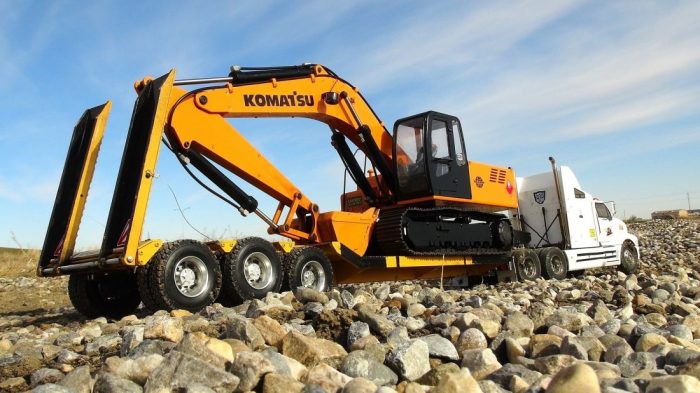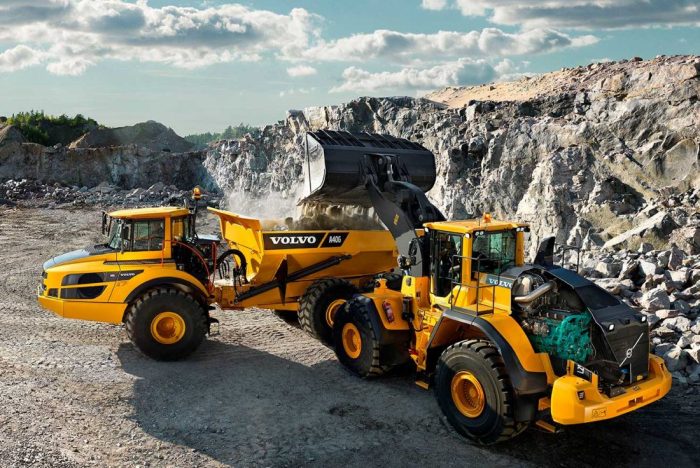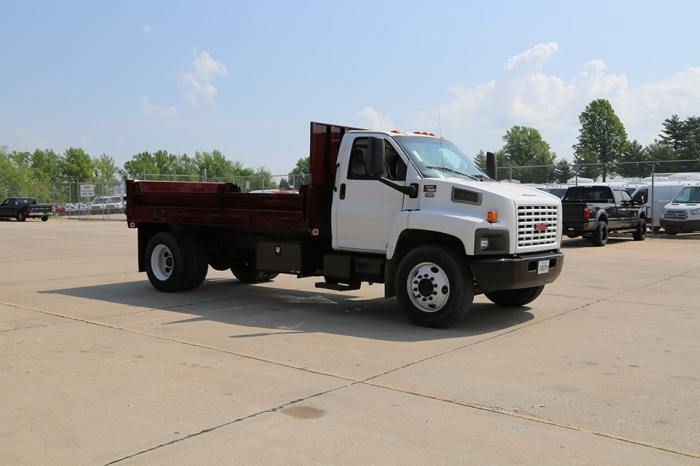How to choose the right construction truck sets the stage for this enthralling narrative, offering readers a glimpse into a story that is rich in detail with formal and friendly language style and brimming with originality from the outset.
Choosing the ideal construction truck involves considering various factors such as payload capacity, engine power, and terrain conditions, ensuring you make the best decision for your construction needs.
Factors to consider when choosing a construction truck
When selecting a construction truck, there are several key factors to consider to ensure that it meets the specific needs of the construction project. These factors include the type of construction work, payload capacity, engine power, torque, as well as terrain and weather conditions.
Types of construction trucks available in the market
- Dump Trucks
- Cargo Trucks
- Crane Trucks
- Concrete Mixer Trucks
- Flatbed Trucks
Importance of payload capacity in relation to the type of construction work
The payload capacity of a construction truck is crucial as it determines the maximum weight of materials or equipment that can be transported. For heavy-duty construction work such as moving large quantities of soil or gravel, a truck with a high payload capacity is essential to ensure efficiency and productivity.
Significance of engine power and torque for various construction tasks, How to choose the right construction truck
Engine power and torque play a vital role in determining the performance of a construction truck. Trucks with higher engine power and torque are better suited for tasks that require towing heavy loads or navigating challenging terrains. It is important to match the engine power and torque of the truck with the demands of the construction project to ensure optimal performance.
Effective communication is essential in ensuring the success of construction projects. Clear and open communication among project stakeholders helps prevent misunderstandings and delays. By utilizing tools like project management software and regular meetings, teams can collaborate effectively. For further insights on effective communication in construction projects, check out Effective communication in construction projects.
Impact of terrain and weather conditions on the choice of construction truck
The terrain and weather conditions of the construction site greatly influence the choice of construction truck. Trucks with all-wheel drive or off-road capabilities are necessary for construction projects in rugged terrains or adverse weather conditions. It is essential to consider these factors to ensure the safety of the crew and the successful completion of the project.
Technology plays a crucial role in modern construction, revolutionizing the industry in various ways. From Building Information Modeling (BIM) to drones and robotics, these advancements have enhanced efficiency and precision in construction projects. To learn more about the role of technology in modern construction, visit Role of technology in modern construction.
Evaluating the size and body type of construction trucks

When choosing a construction truck, evaluating the size and body type is crucial to ensure it meets the specific needs of your project. Different sizes and body types offer various benefits and functionalities that can impact the efficiency and effectiveness of your construction operations.
Compact versus full-size construction trucks:
Compact construction trucks are smaller in size, making them ideal for navigating tight spaces and urban construction sites. They are easier to maneuver and park, which can be advantageous in crowded areas. On the other hand, full-size construction trucks offer greater hauling capacity and power, making them suitable for heavy-duty projects that require transporting large loads over long distances.
Specialized body types:
Construction trucks come in various body types designed to perform specific tasks. Dump trucks are equipped with a hydraulic lift for quickly unloading materials, making them ideal for transporting loose materials like gravel, sand, or debris. Flatbed trucks have a level bed without sides, allowing for easy loading and unloading of heavy equipment or materials. Mixer trucks are specialized trucks with rotating drums that mix concrete while in transit, ensuring a consistent and fresh mixture for construction projects.
Importance of maneuverability:
The size of the construction truck directly impacts its maneuverability on the job site. Smaller trucks are more agile and can access tight spaces, making them suitable for projects with limited space or obstacles. Larger trucks may have difficulty navigating narrow roads or congested areas, affecting productivity and safety. Evaluating the maneuverability of a construction truck is essential to ensure it can efficiently operate in the specific conditions of your construction site.
Understanding the different transmission options

When choosing a construction truck, understanding the different transmission options is crucial. The transmission type can significantly impact the performance, efficiency, and overall operation of the vehicle.
Manual Transmission:
Manual transmissions require the driver to manually shift gears using a clutch pedal and gear stick. While they offer better control over the vehicle, they require more skill to operate effectively. Manual transmissions are often preferred for heavy-duty applications where precise control is needed.
Automatic Transmission:
Automatic transmissions do not require manual shifting as they automatically change gears based on speed, engine load, and other factors. They are easier to operate and more convenient, especially in stop-and-go traffic or when driving on rough terrain. However, they may not provide the same level of control as manual transmissions.
Automated Manual Transmission (AMT):
AMTs combine the convenience of automatic transmissions with some manual control. They use computer-controlled systems to shift gears automatically but can also be manually operated if needed. AMTs offer a good balance between ease of use and control, making them a popular choice for construction trucks.
Advantages and Disadvantages:
– Manual transmissions provide better control and are more durable, but they require more effort to operate.
– Automatic transmissions are convenient and easy to use but may not be as efficient or durable in heavy-duty applications.
– AMTs offer a compromise between manual and automatic transmissions, providing a good balance of control and convenience.
Selecting the Appropriate Transmission:
When choosing a transmission for a construction truck, consider the workload, terrain, and driver preferences. For heavy-duty applications that require precise control, a manual transmission may be the best option. For urban or highway driving with frequent stops, an automatic transmission could be more suitable. For a blend of control and convenience, an AMT might be the ideal choice. Ultimately, the right transmission will depend on the specific needs and requirements of the construction project.
Considerations for safety features and technology: How To Choose The Right Construction Truck

When choosing a construction truck, it is crucial to consider the safety features and technology that can help prevent accidents and protect the driver and passengers. Key safety features such as stability control, anti-lock brakes, and airbags play a significant role in ensuring the safety of everyone on the road.
Key Safety Features
- Stability Control: This feature helps to prevent rollovers and loss of control by automatically adjusting the vehicle’s speed and braking.
- Anti-lock Brakes: Anti-lock braking systems (ABS) prevent the wheels from locking up during sudden braking, allowing the driver to maintain steering control.
- Airbags: Airbags provide an additional level of protection in the event of a collision, reducing the risk of injury to the driver and passengers.
Role of Technology in Enhancing Safety
Technology has played a significant role in enhancing the safety of construction trucks. Features such as backup cameras, blind-spot monitoring, and collision warning systems provide drivers with additional visibility and alerts to potential hazards on the road.
Advancements in Safety Technology
- Backup Cameras: Backup cameras help drivers see obstacles behind the truck, reducing the risk of accidents while reversing.
- Blind-Spot Monitoring: This technology alerts drivers to vehicles or objects in their blind spots, reducing the risk of collisions during lane changes.
- Collision Warning Systems: These systems use sensors to detect potential collisions and warn the driver to take evasive action, reducing the likelihood of accidents.
Last Point
In conclusion, selecting the right construction truck requires careful evaluation of factors like size, body type, transmission options, and safety features to guarantee efficiency and safety on the job site. By following these guidelines, you can confidently choose the perfect construction truck for your projects.